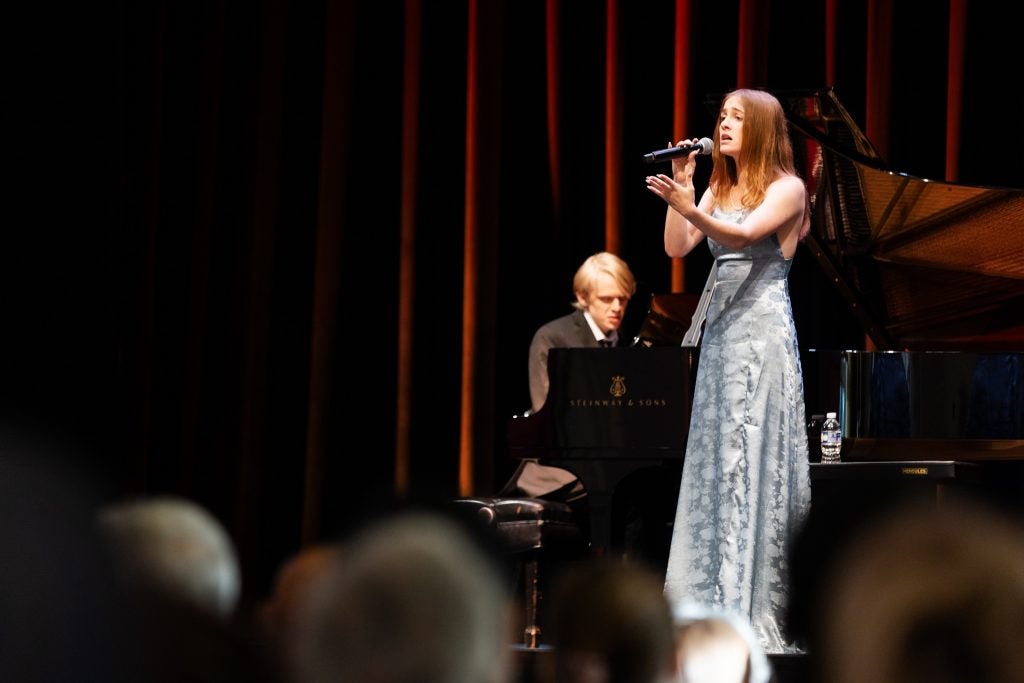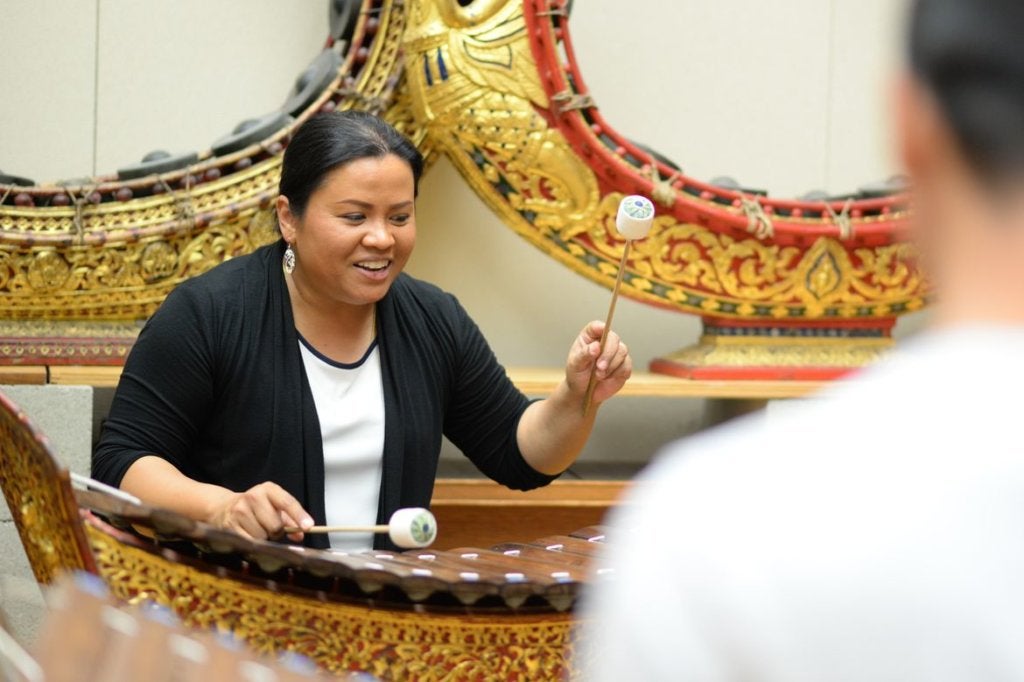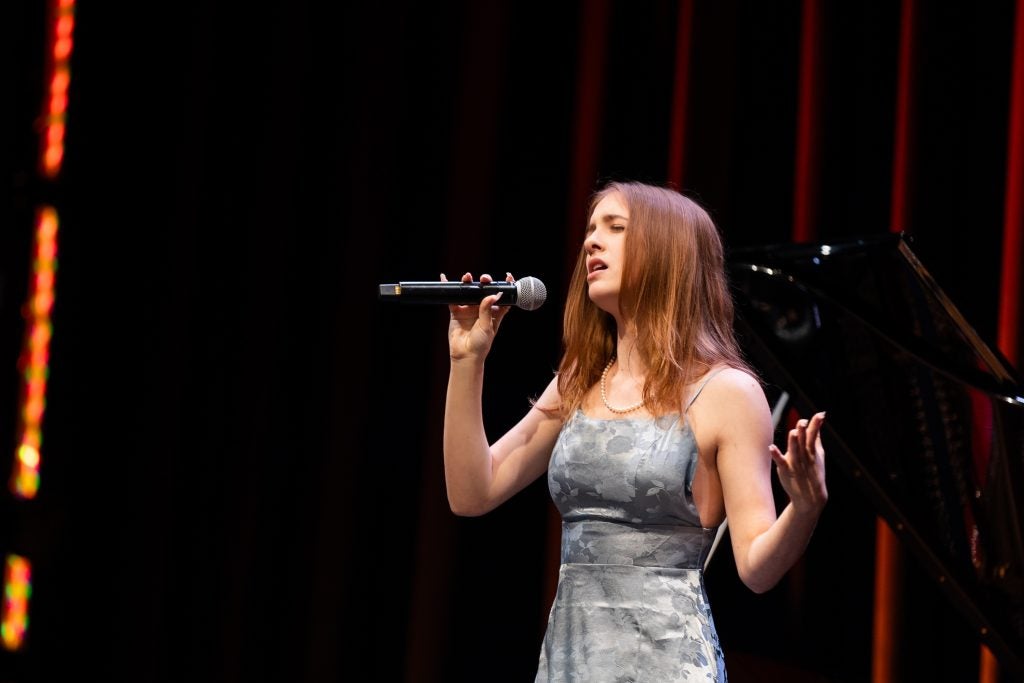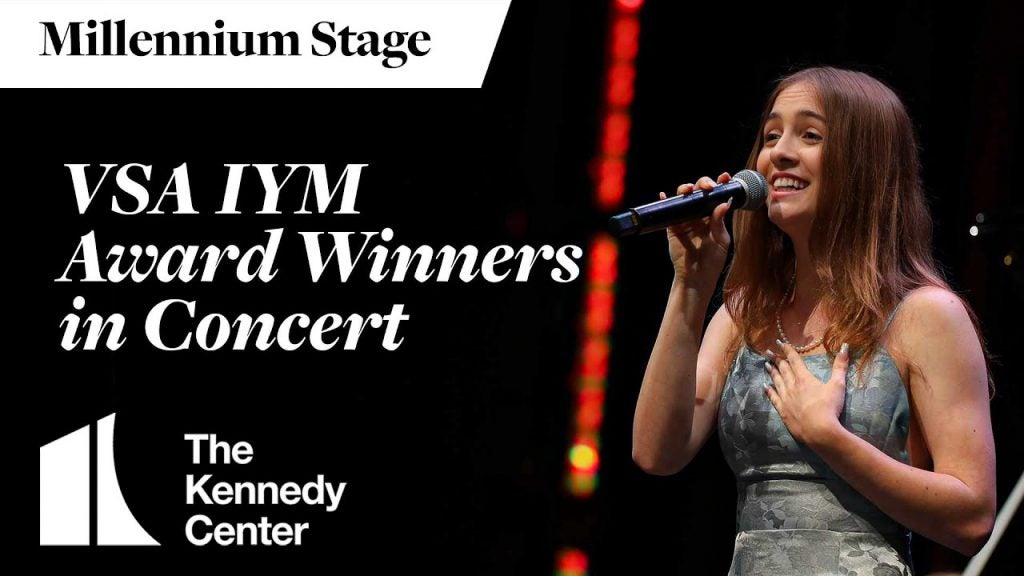Isabel Folkers was only four when she unwittingly chanced upon her career trajectory. The occasion was a house party at the home of an Irish family. The band had finished for the night and they were breaking down their equipment. The young Isabel Folkers jumped up on the makeshift stage and took hold of the hot mic.
“I sang a song I wrote on the spot,” recalled Folkers. “It was called, ‘Irish is Awesome.’”
For Folkers, now a third-year ethnomusicology student at The UCLA Herb Alpert School of Music, the moment was the beginning of a musical journey that continues through today. And her more recent stop was on a much bigger stage: The Millennial Stage at the Kennedy Center in Washington, D.C.
Folkers was one of the 2023 winners of the VSA International Young Musicians’ Competition. International in scope, the competition seeks applicants from 14-25 who identify with a disability. There is no genre or instrument restriction, and applicants run the gamut, from classical violin to hip hop groups to opera to the Chinese Erhu, the Chinese two-string bowed instrument. In such a crowded field, judges look for singular talent and a strong, individual voice.
“Isabel stood out from the beginning,” said Anna Wiggins of the Kennedy Center. “She was multi-talented. She was a great musician, and a great songwriter. She had a clear identity as a performer and a unique voice.”
The competition winners were awarded $2000 and traveled to the Kennedy Center for intensive workshops. Winners were then paired with a mentor specific to their oeuvre. The activities culminated in a concert of all the competition winners on July 22.
“The program is designed to help talented young people with disabilities to see themselves in the artistic world,” said Anna Wiggins. “They have a chance to perform on a great stage, and to learn about their field.”
Folkers was paired with Olivia Frances, a Nashville-based, independent singer-songwriter known for her lush fusions of folk and country music. Folkers shared her original music with Frances, a valuable opportunity for feedback and growth as a musician. Then the two discussed the distribution side of the music industry.
“She helped me understand how to get my name out in the world in a place that is so cluttered by media and in a culture that values immediacy,” said Folkers. “It can be hard for artists to tell their stories in a social media landscape that prizes immediacy. It’s very hard to tell a story in 15 seconds. You have to learn how to navigate all these algorithms that determine how your music finds audiences. Olivia really helped me grapple with that.”
For all of her current success, Folkers wasn’t always sure she wanted to be a musician. She found herself drawn to musical theater in middle school, and recalled a pivotal moment when she tried out for Grease. All of her theater friends were auditioning for the lead role of Sandy. Folkers was cast as Doody—essentially the show’s comic relief. But the part called for one solo moment where Folkers would sit at the top of the set with a guitar and sing.
“That was a big turning point for me,” Folkers recalled. “I had a chance to share my voice in a way that I hadn’t really been able to do before. And it allowed me to channel my anxiety, as I was always an anxious kid. But I got such joy from performing.”
When it came time to look for colleges, Folkers was still uncertain about her future. She had excelled in the sciences, and her siblings had all pursued STEM-oriented fields, and she wasn’t sure if musical theater was really what she wanted to pursue. But the isolation of the pandemic had introduced her to the recording arts, and music was becoming her passion.

A visit to UCLA’s School of Music sealed it. Although she applied to other traditional conservatories and schools of music, UCLA was her first choice. Part of the appeal was the School of Music’s diverse offerings. From the student body to the faculty, from course offerings to musical ensembles, there were new worlds to discover.
“I wanted to get a diverse perspective on music,” said Folkers. “The American music industry today is profit-oriented and tends to commodify music. I wanted to know how music worked in other cultures.”
She found a particularly formative experience in the Music of Thailand Ensemble, led by Supeena Adler.
“I had never encountered Thai music before, it was completely out of my comfort zone. But Supeena Adler was so welcoming,” said Folkers. “She didn’t just teach me to play the instruments, but how to understand how Thai music is a form of communication, a language for healing and community building. People of different communities use music to connect, even if they don’t speak the same language.”

Folkers carries many of the same ideas into her songwriting, where she strivers to connect with her audience on an intimate level.
“Music is a universal language,” said Folkers. “It is a part of every culture. It is part of our essence.”



